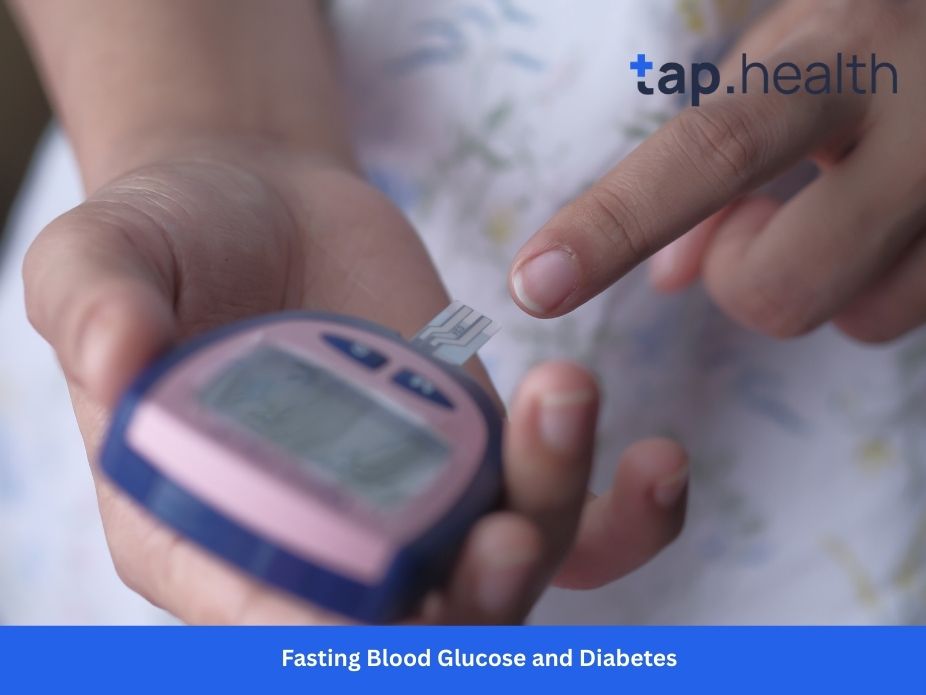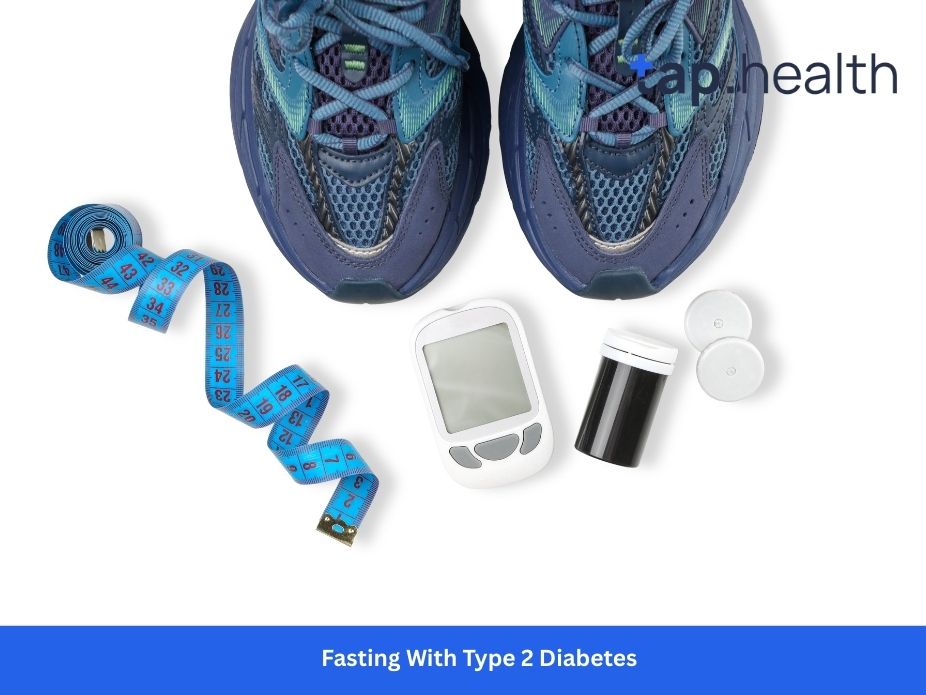Maintaining healthy blood sugar levels is essential for overall well-being. If you’ve ever wondered, “Is an 80 sugar level normal?” you’re not alone. This comprehensive guide will delve deeper into what blood sugar levels mean, why an 80 mg/dL level matters, and how it fits into your health picture. We’ll explore the science behind blood glucose, factors influencing it, potential health implications, and strategies to maintain optimal levels. Let’s embark on this informative journey to better understand your blood sugar. Is a Blood Sugar Level of 80 mg/dL Normal?
What Are Blood Sugar Levels?
Blood sugar, also known as blood glucose, is the primary type of sugar found in your blood. It is a crucial source of energy for the cells in your body. Your blood carries glucose to all of your cells to use for energy. When you eat, your body breaks down carbohydrates into glucose, which enters your bloodstream. In response, your pancreas releases insulin, a hormone that helps your cells absorb glucose from the blood.
Maintaining blood sugar within a normal range is vital because both high and low levels can lead to significant health issues. Understanding these levels helps in preventing conditions like diabetes and hypoglycemia, ensuring your body functions optimally.
The Science Behind Blood Sugar Regulation
Your body meticulously regulates blood sugar levels through a balance of hormones, primarily insulin and glucagon, produced by the pancreas. Insulin lowers blood sugar by facilitating its uptake into cells, while glucagon raises blood sugar by signaling the liver to release stored glucose. This dynamic balance ensures that your cells receive a steady supply of energy.
When this balance is disrupted, it can lead to conditions such as:
- Hyperglycemia: Elevated blood sugar levels.
- Hypoglycemia: Lowered blood sugar levels.
- Diabetes Mellitus: A chronic condition characterized by persistent high blood sugar.
Understanding this regulatory system is essential for grasping why maintaining appropriate blood sugar levels is crucial for health.
Understanding the 80 mg/dL Sugar Level
An 80 mg/dL blood sugar level indicates the concentration of glucose in your blood. To understand its significance, it’s essential to place it within the context of normal blood sugar ranges.
Contextualizing 80 mg/dL
- Fasting Blood Sugar: Typically measured after an overnight fast (no food for at least 8 hours). A normal fasting blood sugar level ranges from 70 to 99 mg/dL. An 80 mg/dL level falls comfortably within this range, suggesting effective glucose regulation.
- Post-Meal Blood Sugar: Measured two hours after eating. The normal range is generally less than 140 mg/dL. An 80 mg/dL level post-meal indicates a strong insulin response and efficient glucose uptake by cells.
Why 80 mg/dL Matters
Maintaining a blood sugar level around 80 mg/dL is often seen as optimal because it indicates:
- Efficient Glucose Utilization: Your cells are effectively using glucose for energy.
- Balanced Insulin Production: Your pancreas is producing the right amount of insulin to manage blood sugar.
- Low Risk of Immediate Complications: Such as hypoglycemia or hyperglycemia.
However, it’s crucial to consider individual health contexts, as what’s normal for one person may differ for another based on various factors like age, activity level, and overall health.
Normal Blood Sugar Ranges
Blood sugar levels fluctuate throughout the day, influenced by factors such as meals, physical activity, and stress. Understanding these fluctuations helps in assessing whether a specific reading, like 80 mg/dL, is within a healthy range.
Standard Blood Sugar Ranges
| Condition | Blood Sugar Level (mg/dL) |
|---|---|
| Fasting (no food for 8 hours) | 70-99 |
| Before Meals (Preprandial) | 70-130 |
| After Meals (2 hours Postprandial) | Less than 140 |
| Random (Any Time of Day) | Less than 200 |
| HbA1c (Average over 3 months) | Below 5.7% |
| Prediabetes Fasting Glucose | 100-125 |
| Diabetes Fasting Glucose | 126 and above |
Understanding Each Category
- Fasting Blood Sugar: Reflects your baseline blood glucose level without recent food intake. It’s a critical indicator for diagnosing diabetes and prediabetes.
- Preprandial Blood Sugar: Measures glucose levels before meals, providing insights into how your body manages glucose intake.
- Postprandial Blood Sugar: Indicates how effectively your body processes glucose after eating, crucial for assessing insulin response.
- Random Blood Sugar: A single blood sugar measurement taken at any time, useful for quick assessments but less reliable for diagnosis.
Authoritative Sources
These ranges are supported by leading health organizations:
- American Diabetes Association (ADA): Offers comprehensive guidelines on blood sugar management and diabetes prevention.
- Centers for Disease Control and Prevention (CDC): Provides extensive resources on blood glucose levels and related health implications.
- World Health Organization (WHO): Sets global standards for blood sugar levels and diabetes care.
Factors Affecting Blood Sugar Levels
Various factors can influence your blood sugar levels, causing them to rise or fall outside the normal range. Understanding these factors is key to managing and maintaining healthy glucose levels.
4.1 Diet and Nutrition
Carbohydrate Intake: Carbs directly impact blood sugar as they break down into glucose. Complex carbs (whole grains, vegetables) lead to gradual glucose release, while simple carbs (sugary foods, refined grains) cause rapid spikes.
Glycemic Index (GI): Foods with a high GI raise blood sugar quickly, while low GI foods have a slower, steadier effect.
Fiber: High-fiber foods slow glucose absorption, preventing sudden spikes.
Protein and Fats: These macronutrients can slow carbohydrate absorption, aiding in blood sugar regulation.
4.2 Physical Activity
Exercise and Glucose Uptake: Physical activity increases insulin sensitivity, allowing your cells to use glucose more effectively. Both aerobic exercises (walking, cycling) and resistance training (weightlifting) are beneficial.
Muscle Mass: Greater muscle mass improves glucose metabolism, reducing blood sugar levels.
4.3 Medications and Supplements
Insulin Therapy: Essential for individuals with Type 1 diabetes and some with Type 2, helping cells absorb glucose.
Oral Medications: Drugs like metformin improve insulin sensitivity and reduce glucose production by the liver.
Supplements: Certain supplements (e.g., chromium, magnesium) can influence blood sugar levels, but should be taken under medical supervision.
4.4 Stress and Mental Health
Cortisol and Adrenaline: Stress hormones can increase blood sugar by promoting glucose release from the liver.
Mental Health Conditions: Conditions like anxiety and depression can affect eating habits and physical activity, indirectly influencing blood sugar levels.
4.5 Sleep and Rest
Sleep Quality: Poor sleep affects insulin sensitivity and glucose metabolism, leading to elevated blood sugar levels.
Sleep Duration: Both insufficient and excessive sleep can disrupt hormonal balance, impacting blood glucose regulation.
4.6 Hydration
Fluid Balance: Dehydration can concentrate blood glucose, raising blood sugar levels.
Kidney Function: Adequate hydration supports kidney function, aiding in glucose excretion.
4.7 Illness and Infection
Inflammatory Response: Illnesses trigger inflammation, which can affect insulin sensitivity and glucose levels.
Infection Stress: The body releases stress hormones during infections, potentially increasing blood sugar.
Understanding these factors allows for proactive management of blood sugar levels through lifestyle adjustments and medical interventions.
Is an 80 Sugar Level Normal?
Yes, an 80 mg/dL blood sugar level is generally considered normal, especially when measured during fasting. Here’s an in-depth look at why this level is deemed healthy and what it signifies about your body’s glucose management.
Fasting Blood Sugar
Fasting blood sugar is a crucial indicator of your baseline glucose levels. According to the American Diabetes Association, a normal fasting blood sugar level ranges from 70 to 99 mg/dL. An 80 mg/dL level:
- Indicates Effective Glucose Regulation: Your pancreas is producing sufficient insulin to manage blood glucose.
- Reduces Risk of Diabetes: Consistently normal fasting levels lower the risk of developing Type 2 diabetes.
- Supports Overall Health: Maintains energy levels and prevents complications associated with abnormal glucose levels.
Post-Meal Blood Sugar
If an 80 mg/dL level is measured two hours after eating, it reflects a robust insulin response and efficient glucose uptake by cells. This suggests:
- Healthy Insulin Function: Your body is effectively managing the glucose surge from food intake.
- Minimal Glucose Fluctuation: Reduces the risk of glucose-related complications over time.
Individual Health Context
While 80 mg/dL is within the normal range, it’s essential to consider personal health factors:
- Age: Metabolic rates can vary with age, affecting what is considered normal.
- Activity Level: Active individuals may naturally have lower blood sugar levels.
- Medical Conditions: Conditions like liver or kidney disease can influence blood sugar regulation.
- Medications: Certain drugs can impact glucose levels, necessitating personalized targets.
Consulting Healthcare Professionals
Always consult with a healthcare provider to interpret blood sugar levels within the context of your overall health. They can provide personalized insights and recommendations based on comprehensive health assessments.
Health Implications of Low Blood Sugar
While an 80 mg/dL blood sugar level is normal, it’s important to recognize the implications of low blood sugar, known as hypoglycemia. Understanding its symptoms, causes, and potential long-term effects is crucial for maintaining optimal health.
Symptoms of Hypoglycemia
Low blood sugar can present a range of symptoms, which can vary in severity:
- Mild Symptoms:
- Shakiness or trembling
- Sweating
- Rapid heartbeat (palpitations)
- Hunger
- Irritability or mood swings
- Moderate Symptoms:
- Confusion or difficulty concentrating
- Dizziness or lightheadedness
- Headaches
- Blurred vision
- Severe Symptoms:
- Seizures
- Loss of consciousness
- Coma
Recognizing these symptoms early can prevent severe complications and allow for prompt intervention.
Causes of Low Blood Sugar
Hypoglycemia can result from various factors:
- Medications:
- Insulin Overdose: Excessive insulin can lower blood sugar levels too much.
- Sulfonylureas: These diabetes medications increase insulin production, potentially leading to hypoglycemia.
- Skipping Meals:
- Irregular eating patterns can cause blood sugar to drop, especially in individuals taking glucose-lowering medications.
- Excessive Alcohol Consumption:
- Alcohol can interfere with glucose production in the liver, leading to hypoglycemia.
- Intense Physical Activity:
- Strenuous exercise can deplete glucose stores, especially if not balanced with adequate nutrition.
- Medical Conditions:
- Adrenal Insufficiency: Reduced cortisol levels can affect glucose metabolism.
- Severe Liver Disease: Impaired liver function affects glucose storage and release.
- Hormonal Deficiencies:
- Imbalances in hormones like glucagon and cortisol can disrupt blood sugar regulation.
Long-Term Effects of Chronic Low Blood Sugar
Persistent hypoglycemia can have severe consequences:
- Neurological Damage:
- Repeated episodes can affect brain function, leading to cognitive impairments and memory issues.
- Cardiovascular Strain:
- Chronic low blood sugar can stress the heart, increasing the risk of heart-related issues.
- Psychological Impact:
- Persistent hypoglycemia can contribute to anxiety, depression, and reduced quality of life.
Preventing Hypoglycemia
Preventive measures include:
- Regular Monitoring: Frequent blood sugar checks help detect and address low levels promptly.
- Balanced Diet: Consuming regular meals with adequate carbohydrates, proteins, and fats stabilizes blood sugar.
- Medication Management: Adhering to prescribed dosages and schedules minimizes hypoglycemia risk.
- Educating Yourself: Understanding the signs and causes allows for proactive management.
Health Implications of High Blood Sugar
While low blood sugar is concerning, high blood sugar (hyperglycemia) also poses significant health risks. Understanding the implications of elevated blood sugar levels is crucial for preventing long-term complications.
Symptoms of Hyperglycemia
High blood sugar can manifest through various symptoms:
- Increased thirst and dry mouth
- Frequent urination
- Fatigue
- Blurred vision
- Headaches
- Unintended weight loss
In severe cases, hyperglycemia can lead to diabetic ketoacidosis (DKA) or hyperosmolar hyperglycemic state (HHS), both life-threatening conditions requiring immediate medical attention.
Long-Term Health Risks
Persistent high blood sugar levels can cause:
- Cardiovascular Disease: Increased risk of heart attacks, strokes, and atherosclerosis.
- Neuropathy: Nerve damage leading to pain, tingling, or loss of sensation, especially in extremities.
- Nephropathy: Kidney damage, potentially leading to kidney failure.
- Retinopathy: Eye damage causing vision impairment or blindness.
- Poor Wound Healing: Elevated glucose levels can impede healing, increasing infection risk.
Preventing Hyperglycemia
Strategies to maintain normal blood sugar levels include:
- Healthy Eating: Balanced meals with controlled carbohydrate intake.
- Regular Physical Activity: Enhances insulin sensitivity and glucose uptake.
- Medication Adherence: Taking prescribed medications as directed.
- Stress Management: Reduces cortisol levels that can elevate blood sugar.
- Regular Monitoring: Keeps track of blood sugar trends to make informed adjustments.
Maintaining Healthy Blood Sugar Levels
Achieving and maintaining healthy blood sugar levels involves a combination of lifestyle choices, dietary habits, physical activity, and medical management. Here’s a detailed guide to help you keep your blood glucose within the optimal range.
8.1 Balanced Diet
Whole Foods Over Processed: Emphasize whole grains, lean proteins, fruits, and vegetables. These foods provide essential nutrients and fiber that aid in glucose regulation.
Carbohydrate Counting: Understanding the carbohydrate content in foods helps in managing blood sugar levels, especially for those with diabetes.
Healthy Fats: Incorporate sources of healthy fats like avocados, nuts, and olive oil, which can improve insulin sensitivity.
Portion Control: Eating appropriate portion sizes prevents excessive glucose intake, reducing the risk of blood sugar spikes.
8.2 Regular Exercise
Aerobic Exercise: Activities like walking, jogging, swimming, and cycling increase heart rate and promote glucose uptake by muscles.
Strength Training: Building muscle mass enhances insulin sensitivity, allowing for better glucose utilization.
Flexibility and Balance Exercises: Practices like yoga and tai chi reduce stress and improve overall metabolic health.
Consistency: Aim for at least 150 minutes of moderate-intensity exercise per week, as recommended by health authorities.
8.3 Monitoring Blood Sugar
Regular Testing: Keeping track of blood glucose levels helps in understanding how different factors affect your sugar levels.
Using Technology: Continuous glucose monitors (CGMs) provide real-time data, allowing for timely adjustments in diet or medication.
Record Keeping: Maintaining a log of blood sugar readings, meals, and activities can help identify patterns and triggers.
8.4 Stress Management
Mindfulness and Meditation: Practices that promote relaxation can lower cortisol levels, reducing blood sugar spikes.
Deep Breathing Exercises: Simple breathing techniques can calm the nervous system and stabilize glucose levels.
Hobbies and Leisure Activities: Engaging in enjoyable activities diverts attention from stressors, promoting overall well-being.
8.5 Adequate Sleep
Sleep Duration: Aim for 7-9 hours of quality sleep each night to support metabolic health.
Sleep Hygiene: Maintain a regular sleep schedule, create a restful environment, and avoid stimulants before bedtime.
Address Sleep Disorders: Conditions like sleep apnea can disrupt glucose metabolism and should be treated promptly.
8.6 Hydration
Stay Hydrated: Drinking sufficient water helps maintain optimal blood volume and aids in glucose transport and excretion.
Limit Sugary Beverages: Opt for water, herbal teas, or other non-sugary drinks to prevent unnecessary glucose intake.
8.7 Medical Check-ups
Regular Health Assessments: Routine visits to healthcare providers ensure early detection and management of blood sugar abnormalities.
Medication Reviews: Periodic evaluations of prescribed medications ensure their effectiveness and adjust dosages as needed.
Specialist Consultations: Consulting endocrinologists or diabetes educators can provide specialized guidance for managing blood sugar levels.
FAQs on Is an 80 Sugar Level Normal?
1. What is considered low blood sugar?
Low blood sugar, or hypoglycemia, is typically defined as a blood glucose level below 70 mg/dL. Symptoms can include shaking, sweating, confusion, dizziness, and rapid heartbeat. Severe hypoglycemia can lead to seizures or loss of consciousness.
2. Can an 80 mg/dL blood sugar level be too low?
An 80 mg/dL level is generally considered normal, especially when fasting. However, individual circumstances may vary. For some people, especially those with diabetes, a level of 80 mg/dL might be appropriate, while others might require slightly higher levels. Always consult your healthcare provider if you have concerns.
3. How often should I check my blood sugar levels?
The frequency of blood sugar testing depends on your health status:
- People with Diabetes: May need to check multiple times daily, including before and after meals.
- Individuals without Diabetes: Periodic testing during health assessments may suffice.
- Others: Your doctor will recommend the appropriate frequency based on your risk factors and health conditions.
4. What foods help maintain stable blood sugar levels?
Foods that promote stable blood sugar levels include:
- High-Fiber Foods: Vegetables, fruits, whole grains, and legumes slow glucose absorption.
- Lean Proteins: Chicken, fish, tofu, and beans provide sustained energy without spiking blood sugar.
- Healthy Fats: Avocados, nuts, seeds, and olive oil help in moderating glucose levels.
- Complex Carbohydrates: Whole grains like quinoa, brown rice, and oats release glucose gradually.
5. Can stress affect my blood sugar?
Yes, stress can significantly impact blood sugar levels. Stress hormones like cortisol and adrenaline increase glucose production in the liver and reduce insulin sensitivity, leading to elevated blood sugar levels. Managing stress through relaxation techniques can help maintain normal glucose levels.
6. Is an 80 mg/dL blood sugar level the same for everyone?
While 80 mg/dL is generally considered normal, individual factors such as age, health conditions, activity levels, and medications can influence what is normal for you. Personalized targets should be discussed with your healthcare provider.
7. Should I be concerned if my blood sugar is 80 mg/dL after a meal?
Typically, post-meal blood sugar should be less than 140 mg/dL two hours after eating. An 80 mg/dL level post-meal is normal and indicates effective insulin response and glucose uptake. However, individual variations exist, so consult your healthcare provider if you have concerns.
8. How does exercise impact blood sugar levels?
Exercise helps lower blood sugar levels by increasing insulin sensitivity and promoting glucose uptake by muscles. Regular physical activity can help prevent insulin resistance and manage blood sugar levels effectively.
9. Can dehydration affect my blood sugar levels?
Yes, dehydration can lead to higher blood sugar levels because there is less fluid available to dilute glucose in the bloodstream. Staying hydrated helps maintain optimal blood sugar levels and supports overall metabolic health.
10. When should I seek medical help for blood sugar issues?
Seek medical attention if you experience symptoms of hypoglycemia (e.g., dizziness, confusion, excessive sweating) or hyperglycemia (e.g., extreme thirst, frequent urination, fatigue). Severe symptoms like seizures or loss of consciousness require immediate medical intervention.
11. How does sleep affect blood sugar levels?
Poor sleep quality or insufficient sleep can impair insulin sensitivity, leading to elevated blood sugar levels. Chronic sleep deprivation is associated with an increased risk of developing Type 2 diabetes.
12. Can certain medications cause low blood sugar?
Yes, medications like insulin, sulfonylureas, and some other diabetes drugs can cause low blood sugar if not managed properly. Always follow your healthcare provider’s instructions and discuss any side effects you experience.
13. What role does the liver play in blood sugar regulation?
The liver stores glucose in the form of glycogen and releases it into the bloodstream when needed. It plays a crucial role in maintaining blood sugar levels during fasting states and between meals.
14. How does aging affect blood sugar levels?
As you age, metabolic processes can slow down, and insulin sensitivity may decrease, potentially leading to higher blood sugar levels. Maintaining a healthy lifestyle becomes increasingly important to manage blood glucose effectively.
15. Can weight loss impact blood sugar levels?
Yes, losing excess weight can improve insulin sensitivity, making it easier for your body to regulate blood sugar levels. Weight loss is a key strategy in preventing and managing Type 2 diabetes.
References
- American Diabetes Association
- Centers for Disease Control and Prevention (CDC)
- Mayo Clinic – Blood Sugar Levels
- National Institute of Diabetes and Digestive and Kidney Diseases (NIDDK)
- Harvard Health Publishing
- World Health Organization (WHO) – Diabetes
- Johns Hopkins Medicine – Hypoglycemia
- Cleveland Clinic – Blood Sugar Levels
- National Health Service (NHS) – Blood Sugar Levels
- Harvard T.H. Chan School of Public Health – Carbohydrates and Blood Sugar
Maintaining a normal blood sugar level, such as an 80 mg/dL reading, is a positive indicator of your metabolic health. By understanding what these numbers mean and how to keep them in check, you can take proactive steps toward a healthier life. Always consult with healthcare professionals to tailor advice to your personal health needs.
Additional Insights: The Role of Genetics and Lifestyle in Blood Sugar Levels
Understanding blood sugar levels isn’t just about day-to-day management; it also involves recognizing the broader factors that influence glucose metabolism. Two significant areas to consider are genetics and lifestyle choices.
Genetics and Blood Sugar Regulation
Family History: If you have a family history of diabetes or other metabolic disorders, you may be more predisposed to blood sugar imbalances. Genetics can influence how your body processes insulin and manages glucose levels.
Genetic Mutations: Certain genetic mutations can affect insulin production and action, leading to conditions like MODY (Maturity Onset Diabetes of the Young), which impacts blood sugar regulation differently from Type 1 or Type 2 diabetes.
Personalized Medicine: Advances in genetic research are paving the way for personalized treatment plans based on an individual’s genetic makeup, enhancing the effectiveness of blood sugar management strategies.
Lifestyle Choices and Blood Sugar
Dietary Habits: Beyond what you eat, how you eat can influence blood sugar. Eating at regular intervals and avoiding large gaps between meals help maintain steady glucose levels.
Alcohol Consumption: Moderate alcohol intake can have different effects on blood sugar. While excessive drinking can lead to hypoglycemia, moderate consumption might have a neutral or slightly positive impact on insulin sensitivity.
Smoking: Smoking is linked to insulin resistance and higher blood sugar levels. Quitting smoking can improve metabolic health and aid in blood sugar regulation.
Environmental Factors: Exposure to certain environmental toxins and pollutants can disrupt metabolic processes, potentially affecting blood sugar levels.
Technology and Innovation in Blood Sugar Management
Continuous Glucose Monitors (CGMs): These devices provide real-time blood sugar readings, allowing for more precise management and timely interventions.
Smart Insulin Pens: Integrating technology with insulin delivery, these pens track doses and timing, improving diabetes management.
Mobile Apps: Numerous apps help track diet, exercise, and blood sugar levels, providing valuable data for personalized health plans.
Telemedicine: Virtual consultations with healthcare providers make it easier to manage blood sugar levels, especially for those with mobility issues or living in remote areas.
The Importance of Education and Support
Diabetes Education Programs: Participating in structured education programs can empower individuals with the knowledge and skills needed to manage their blood sugar effectively.
Support Groups: Connecting with others facing similar challenges provides emotional support and practical tips for maintaining healthy blood sugar levels.
Healthcare Team Collaboration: Working closely with a team of healthcare professionals, including dietitians, endocrinologists, and diabetes educators, ensures a comprehensive approach to blood sugar management.
Conclusion
An 80 mg/dL blood sugar level is generally considered normal, especially when measured during fasting. It indicates effective glucose regulation and a healthy metabolic state. However, maintaining this balance requires a comprehensive understanding of the factors influencing blood sugar levels, including diet, exercise, stress, sleep, and genetics.
By adopting a balanced diet, engaging in regular physical activity, managing stress, ensuring adequate sleep, and staying hydrated, you can support optimal blood sugar levels. Regular monitoring and consulting with healthcare professionals further enhance your ability to maintain metabolic health.
Remember, individual needs may vary, and personalized advice from healthcare providers is invaluable in managing blood sugar levels effectively. Stay informed, proactive, and engaged in your health journey to ensure long-term well-being.
References
- World Health Organization (WHO) – Diabetes: Global standards and information on diabetes care and blood sugar levels. Visit WHO
- National Health Service (NHS) – Blood Sugar Levels: UK-based health information on maintaining healthy blood glucose. Visit NHS
- Harvard T.H. Chan School of Public Health – Carbohydrates and Blood Sugar: Research on the impact of carbohydrates on glucose levels. Visit Harvard T.H. Chan School



